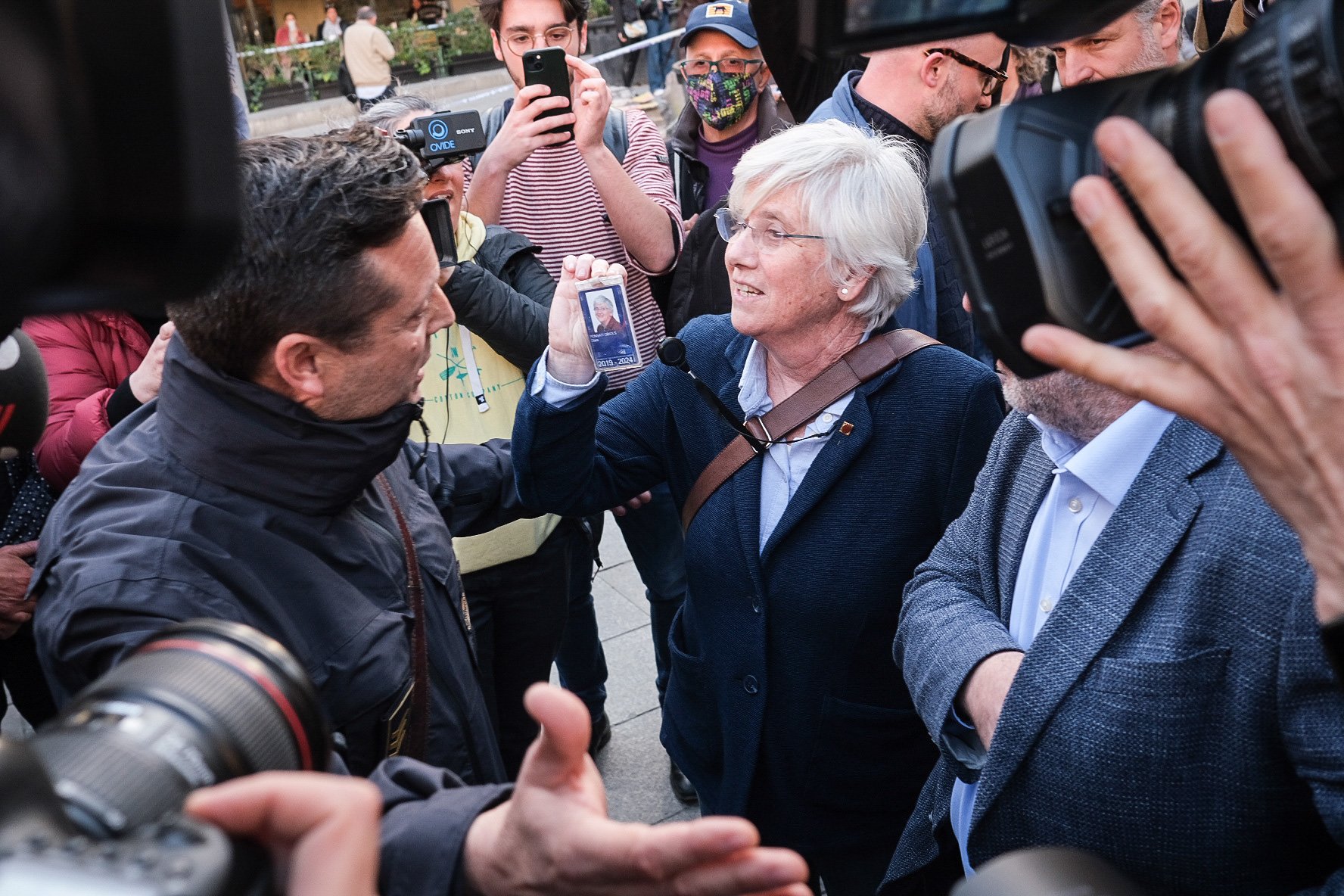The Berlin newspaper Neues Deutschland has warned that the arrest of Catalan MEP Clara Ponsatí on Tuesday on her first return to the Spanish state in five years is an "antidemocratic precedent" for the whole of Europe, because it is the first time that a European parliamentarian has been arrested despite having her parliamentary immunity recognized. The German daily reports that Robert Cuillo, ex-spokesperson for the late European Parliament president David Sassoli, also remarked that there is no precedent for the arrest suffered by the former Catalan government minister, carried out by the Mossos d'Esquadra police. "Spain has set a clear antidemocratic precedent," said Neues Deutschland. The newspaper underlined that the Spanish authorities had done exactly what the exiled Catalan expected by arresting her after a press conference in central Barcelona, just hours after she had entered Spanish territory. "Ponsatí, an MEP for the Together for Catalonia (Junts) party and a confidant of the president in exile Carles Puigdemont, was able to show that in Spain not even immunity protects her. She commented: 'The day of my return clearly shows that the persecution I face does not only affect me, but the whole country'. She was released after 4 hours and will have to appear before the investigating judge Pablo Llarena at the Supreme Court in Madrid on April 24th." The German media notes that "it is unlikely that she will appear, because she denies the legitimacy of the court and the judge."

"Catalan minister Ponsatí: a precedent in Europe", headlines Neues Deutschland
According to Neues Deutschland, the arrest by the Catalan Mossos police highlighted the "passivity" of the European institutions when it comes to defending the immunity of MEPs. "It could be seen when the MEP was arrested: instead of immediately defending immunity, the president of the European Parliament, Roberta Metsola, only remarked through a spokesperson: "We are examining all the legal aspects of this case". The newspaper asserts that Metsola knows perfectly well that in order to arrest an MEP, immunity must first be lifted, and that the Spanish judge Llarena is the figure who should have asked the European Parliament before doing anything.
The newspaper also quotes lawyer Gonzalo Boye, who affirms that with respect to Puigdemont and Ponsatí, Spain has suffered a "complete defeat". "In Spain the members of Puigdemont's government were sentenced to prison terms of up to 13 years for sedition. On the other hand, neither in Germany, nor Switzerland, nor Belgium nor Scotland did the judges find evidence of this, and they accordingly refused the extraditions," the paper summarizes.
Ponsatí has since returned to Barcelona once more, after travelling north to attend the plenary session of the European Parliament the day after her arrest. Despite the EU's passivity so far, the judge preferred to avoid maintaining the explicit contradiction between Spanish and European legislation that would have been writ large if an MEP has been prevented from attending the plenary session, and therefore interfering with the activity of the European Parliament. The exiled minister can travel freely to and from Catalonia until April 24th, when she has been summoned to Madrid by Llarena, although she does not plan to go there.

